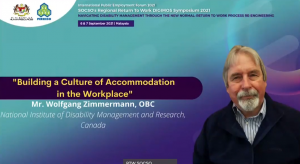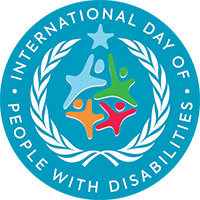
With the recent sudden and untimely passing of Ralph McGinn, WorkSafeBC not only lost an extremely knowledgeable and committed Chair of its Board of Directors, but many lost a personal friend, and our country and the world has lost a foremost leader who made improving workplace health and safety a life-long priority, all the while leading his professional efforts through a very collaborative and personal engagement style which led to many lasting friendships.
In addition to all his tangible and lasting OS&H achievements, Ralph also thoroughly understood the value and importance of effective Return to Work and Disability Management programs, the positive impact that effective policies, programs and practices in these areas could have on the economic, social and psychological well-being of injured and disabled workers while at the same time reducing costs to employers and society at large. Ralph’s larger than life impact can perhaps be best explained through comments from a small cross section of the many individuals who made their voices heard.
To view the full Communiqué, please click on the following link:
More Information










